For hotel owners looking to grow their business, a robust revenue management strategy is of the utmost importance, helping to optimize business results. However, under the broader revenue management umbrella, many smaller strategies can help to facilitate growth. In this article, you’ll find 23 revenue management strategies that hotel industry employees can employ to achieve this ultimate objective in 2026.
Table of Contents
- What Is Revenue Management?
- 23 Revenue Management Strategies to Grow Your Hospitality Business in 2026
- 1. Analyze the Market
- 2. Pricing Optimization
- 3. Work Closely With Other Departments
- 4. Forecasting Strategies
- 5. Embrace Search Engine Optimization
- 6. Use Dynamic Pricing
- 7. Choose the Right Pricing Strategy
- 8. Incentives For Direct Bookings
- 9. Prioritize Online Distribution Channel Management
- 10. Focus on Mobile Optimization
- 11. Work With a Freelance Revenue Manager
- 12. AI in Revenue Management
- 13. Ancillary Revenue Management Strategy
- 14. Focus on Customer Retention
- 15. Use of Omnichannel Data for Revenue Management
- 16. Forecast Demand for Hotel Rooms
- 17. Generate Customer Loyalty
- 18. Build Local Partnerships
- 19. Create Market Segments
- 20. Map Out a Demand Calendar
- 21. Implement an Upselling Strategy
- 22. Optimize Your Use of OTAs
- 23. Make Use of Automation Tools
- What is Total Revenue Management?
What Is Revenue Management?
Revenue management is a popular concept within the hotel industry and is used to optimize a hotel or resort’s financial results by maximizing revenue. The accepted definition is selling the right hotel room to the right customer at the right time, for the right price via the right channel, with the best cost efficiency.
Typically, it requires businesses to effectively use performance data and analytics to predict demand, establish a dynamic pricing model, and maximize the revenue the company brings in.
Although revenue management applies to other industries, it has significance in the hospitality industry because hotels deal with a perishable inventory, fixed costs, and varied levels of demand. According to STR Global, U.S. hotels saw a 1.8% increase in RevPAR in 2024, driven mainly by higher room rates. And CBRE’s 2025 Global Hotel Outlook predicts RevPAR will grow another 2% in 2025, again thanks to rising average daily rates (ADR).
Revenue management is important because it takes the guesswork out of key pricing decisions. You can read more extended information about revenue management in the article “What is revenue management?”.
23 Revenue Management Strategies to Grow Your Hospitality Business in 2026
Below is a list of 23 revenue management strategies you can use to grow your hotel business in 2026.
1. Analyze the Market
To implement a successful revenue management strategy, you must clearly understand your market, where demand comes from, and the local factors that might affect seasonal demand. You must also know your audience’s needs, wants, and expectations.
Moreover, you need to do competitor research to see what exists within the market and make strategic decisions regarding price, discounts, and advertising with this competition in mind. Remember, this competition may not always be obvious and may not always be in the same location as your hotel.
According to the Statista 2025 Travel & Tourism Report, global hotel demand is forecasted to grow 4.5% annually through 2030. Meanwhile, Revenue Matters’ Hotel Trends Overview reports that GDP growth is expected to slow from 2.4% in 2024 to 2.1% in 2025. This report highlights that hoteliers need sharp market insights to stay competitive. Hilton, for example, uses STR analytics across its portfolio to quickly pinpoint and address market performance gaps.
2. Pricing Optimization
Selling the right room to the right person at the right price requires you to segment your customer base appropriately. To do this, you need to identify different ‘types’ of customers, look at these segments, and evaluate when they book hotel rooms or hotel facilities, how they book them, and other habits. Based on this, you need to diversify your pricing strategies.
When this is carried out, it allows you to optimize prices for those different segments. One of the key advantages of this is that once prices are optimized for a particular segment, price changes can be minimized. This, in turn, can help generate customer loyalty from those who appreciate your price consistency.
A ResearchGate case study documents how Marriott International introduced a smart pricing system, the Group Pricing Optimizer (GPO), to help set better prices for group bookings. This tool supports Marriott’s team by analyzing things like guest demand, price sensitivity, and market trends to suggest the best possible rates for group customers. The system has been in use since late 2006 and has clearly helped Marriott increase its hotel profits and sales process for both sales managers and customers. Overall, the GPO has helped Marriott make smarter pricing decisions and provide better service for group and event customers.
For more information about pricing strategies, read “Pricing Strategies to Increase Your Hotel Revenue.”
Table: Customer Segmentation Examples
3. Work Closely With Other Departments
Next, it is important to achieve close collaboration between the different hotel departments, such as sales and marketing, to ensure that your revenue management strategies and their departmental strategies are in alignment with one another so that you can address challenges collectively.
Identify key departmental decision-makers and bring them on board. Work with them to adjust your revenue management strategies rather than imposing your will, which might be met with resistance. Close collaboration will also help ensure you always present consistent messages to customers and clients.
A Deloitte European Hotel Industry survey found that for most hotel industry executives, managing cash flow and improving performance are expected to be top priorities in 2025. This survey highlights that revenue management can no longer operate in isolation; it requires integration with sales, marketing, operations, and guest services.
4. Forecasting Strategies
One of the most important aspects of revenue management is forecasting demand accurately, which allows you to anticipate future demand and revenue, enabling necessary adjustments to be made. Within the hospitality industry, high-quality forecasting relies on accurate records, including occupancy, room rates, and revenue.
As Dr. Cindy Heo, Associate Professor of Revenue Management at EHL, explains,
“Demand forecasting plays a critical role in revenue management by providing data-driven insights into future customer behavior. Accurate forecasts allow hoteliers to set the right room rates, optimize inventory, and improve operational planning—all of which enhance revenue and guest satisfaction.”
Accurate forecasts do more than increase profit; they prevent costly missteps. According to HSMAI (Hospitality Sales and Marketing Association International), 72% of hotel managers reported that inaccurate forecasts led to pricing issues and missed revenue opportunities. This underscores the need for robust forecasting systems that use both machine learning and human expertise.
Most forecasting strategies rely heavily on using historical data to spot trends. For example, if you notice an upturn in business in the past three Julys, assuming the same may occur next time is sensible. However, forecasting also requires an awareness of current bookings, competitors’ performance, local events, and wider industry trends.
5. Embrace Search Engine Optimization
Search engines offer one of the single biggest opportunities for those operating in the hotel industry to attract customers, which makes search engine optimization an important part of a robust revenue management strategy. Through SEO, hotel owners can improve the visibility of their website on search engine results pages.
Focus on local SEO optimization for “hotels near me” searches, create content targeting long-tail keywords related to local attractions and events, and optimize booking engine functionality for search engines. Many hoteliers have adopted interactive widgets on their homepage to attract and convert website visitors into hotel bookers, with key messages including dynamic price comparisons versus major OTAs. According to the State of Inbound Marketing Trends Report by HubSpot, organic search is the top website traffic source.
Consequently, you can improve the chances of attracting business from customers who are not specifically searching for your hotel but are searching for a hotel in your location. To achieve this, it is best to operate a solid content marketing strategy and ensure your website’s design is optimized for SEO purposes.
According to Hospitality Net research, the average hotel website conversion rate typically falls below 2%, meaning out of 100 website visitors, only two or fewer will book directly. This makes SEO crucial for attracting qualified traffic that’s more likely to convert into direct bookings.
6. Use Dynamic Pricing
Dynamic pricing is one of the major revenue management strategies hotel industry leaders use. It involves making adjustments to room rates based on market realities, such as customer demand.
Ira Vouk, author of Hospitality 2.0 and hospitality technology and revenue management consultant, defines,
“Dynamic pricing is just the concept of the change itself as opposed to not changing your price at all, which still happens in a lot of cases where hotels have the same rate across the whole winter season. Many properties still don’t adjust their prices based on demand.”
The importance of dynamic pricing is linked to its ability to help hotels extract maximum value from their inventory. It can also be used strategically to increase levels of demand at key moments.
A typical example of dynamic pricing is reducing room rates during periods of low demand, providing a clear incentive to book, and increasing room rates when demand is high, maximizing the amount of revenue generated.
Research from Coaxsoft shows that hotels using dynamic pricing saw a 15% increase in average occupancy, a 20% rise in total revenue, and up to a 30% spike in revenue during special events. A martech case study reported that Marriott’s use of dynamic pricing led to a 12.5% year-over-year increase in ADR, averaging $202.75 per room. These metrics prove that dynamic pricing not only increases profitability but also helps fill rooms more efficiently.
7. Choose the Right Pricing Strategy
There are many different pricing strategies, and no one strategy will guarantee success. Instead, those in the hospitality sector need to consider the best strategy for their particular hotel based on what they have to offer, who they are trying to attract, and what strategy their competitors are employing.
A competitive pricing strategy, where prices are set based on other hotels’ prices, puts your business in direct competition and is good when your hotel has more to offer than your rivals do.
According to a study published in PMC, hotels using economic pricing strategies that position themselves competitively in the market saw significant benefits. The study found that a 5% increase in customer retention can lead to a profit increase of between 20% and 90%. This shows that the right competitive pricing approach not only attracts guests but also keeps them coming back.
Yet, a discount strategy might be best in slow seasons because a low-paying customer is better than an empty room. Another option is the value-added approach, where rates are higher, but additional value is provided through extras and freebies.
8. Incentives For Direct Bookings
While it is certainly important to cater to all distribution channels and meet customers where they are rather than where you want them to be, maximizing the number of direct bookings made is also sensible.
The primary reason is that direct bookings do not require the commission to be paid to third parties, which means they are ideal for maximizing revenue. One option is to offer exclusive incentives, such as loyalty points or freebies, for customers who book directly through your website.
According to Skift Research’s Hotel Distribution Outlook, direct channels could potentially generate more than $400 billion of hotel gross bookings versus $333 billion from OTAs by 2030. This shift toward direct bookings represents a significant opportunity for hoteliers to reduce commission costs and increase profitability.
Video: Increase Direct Bookings
9. Prioritize Online Distribution Channel Management
Modern hotels use a variety of distribution channels to sell rooms, including OTAs, their own hotel website, and global distribution systems. Each of these channels needs to be carefully managed to optimize revenue. According to Skift Research, online travel agencies had a slight edge over hoteliers in hotel gross bookings in 2024, $266 billion to $262 billion, respectively, highlighting the ongoing competition for distribution dominance.
Therefore, it is important to take sensible steps to manage distribution channels, as this can help to ensure each channel is performing optimally. Channel management also helps to prevent issues like rooms being double-booked.
In the article “The Most Important Online Distribution Channels for Hotels”, you can explore the topic of distribution channels for revenue management strategies in the hotel industry in greater depth. Along the way, you will learn about the most important channels to utilize and why those channels are valuable.
10. Focus on Mobile Optimization
Mobile has become one of the single most important revenue streams for those in the hotel industry. Statista reports that in 2024, 70.5% of all traffic to travel and hotel websites came from mobile users. More and more travelers are using their phones to book hotels and plan trips. In 2024, the mobile travel market was worth $228 billion, and it is expected to grow to over $526 billion by 2032. By 2026, more than half of all bookings will happen on mobile devices. That’s why hotels need to focus on mobile-first design and features.
Guests now expect everything to work smoothly on their mobiles. A recent survey found that 73% of people like to book, check-in, or request services using mobile devices, and 96% of hotels already offer some form of contactless service. So, any hotel or resort operating without prioritizing mobile optimization is already operating at a distinct disadvantage compared to its competitors.
Make sure your website is optimized for mobile viewing, meaning it loads quickly, the pages display properly on mobile devices, and all buttons are fully functional. In addition, you need to ensure your booking process is also optimized so that customers can book rooms from their mobile devices without needing to switch to a desktop.
Accor Hotels shows how mobile optimization works in real life. The hotel made big improvements to its mobile app. They added features like online check-in and loyalty point payments. The results were impressive. Mobile bookings grew from 12% to 18% in just two years. Their app was downloaded over 5 million times. Website traffic doubled. Direct bookings increased by 20%.
11. Work With a Freelance Revenue Manager
Finally, in many cases, it can be beneficial to enlist the help of a freelance revenue manager, who can bring knowledge, expertise, and experience to your organization. Freelancers are used to coming into hotels and getting to work quickly, and can work as and when needed.
Appointing a full-time revenue manager internally means employing them full-time, but a freelancer will only need to be paid for their work, meaning less of their time will be wasted. Moreover, because of their established expertise, you can save money on the costs associated with training them.
12. AI in Revenue Management
One of the most exciting revenue management strategies hotel industry figures are now exploring is the use of artificial intelligence technology. As a discipline, revenue management is hugely reliant on data, and AI can analyze huge amounts of data and do so at speeds that humans cannot replicate.
According to the Artificial Intelligence – Worldwide Report by Statista, the global AI market size is projected to grow at a CAGR of 15.83% until 2030. AI can be especially valuable for identifying patterns within data. This could include patterns in demand levels or guest behavior, but some of these patterns may also be less obvious and harder for a human to identify. AI can continually analyze data, freeing up more staff time while allowing you to optimize your approach.
According to Oracle NetSuite, analysts estimate that the AI market in hospitality was about $90 million in 2023, and it’s projected to grow by 60% annually, reaching over $8 billion by 2033. This rapid expansion is because AI is woven into every part of hotel operations, from front desk chatbots and housekeeping scheduling to dynamic pricing engines.
For example, Marriott Bonvoy introduced an AI-powered search feature in its Homes & Villas division, which spans 140,000 luxury home rentals. This AI lets guests use everyday language, like “cozy mountain cabin with a fireplace,” and it returns smart recommendations, making the booking process much smoother.

Damiano Zennaro, Founder, DZ Consulting“Rather than shrinking, I would say that Artificial Intelligence is changing, modeling, and evolving roles, and this is happening in all industries. The question is how to stay relevant. To stay relevant, Revenue Managers will need to become much more strategic and work on developing their soft leadership skills like effective and clear communication, negotiation, empathy, problem-solving, adaptability, collaboration and team building, and explaining complex situations in a simple way. This is already changing our industry and will continue to do so in the future. Everyone should ask themselves: how can I stay relevant in the coming years where the starting point is embracing change? My advice is to be open to ongoing change. The market will require this type of flexible attitude, not only to thrive but to survive as well.” Click here to read more about the impact of AI on RMS from our Expert Panel. |
Video: How AI is Changing Hotel Revenue Management
13. Ancillary Revenue Management Strategy
Ancillary revenue management refers to various revenue management strategies the hotel industry uses to generate income from extra products or services, away from the sale of hotel rooms. It allows your hotel to diversify its revenue streams, maximize revenue generated from each guest, and earn money from external businesses and individuals.
There are a huge number of opportunities for hotels to earn additional income, including offering food and beverages, serving as a venue for weddings and similar events, operating a gift shop or a grocery shop, offering leisure services, and more. Many of these revenue streams are also able to improve the overall guest experience. CBRE data shows U.S. hotel spas grew spa revenue per available room (PAR) by 12.6% from 2018 to 2022, with resort spas rising 14.2%.

Tanya Hadwick, Group Revenue & Yield Leader, SunSwept Resorts“An interesting question when working in ultra inclusive resorts, as it takes some real thought on how you can increase Ancillary Revenue. It comes down to what you have available to offer at additional costs, and what the guest is prepared to spend. For many, the aim of an all-inclusive is to have already budgeted the cost of the trip. From an F&B perspective, some examples include high-end specials, such as surf and turf with lobster and steak, champagne, high-end wines and exclusive wine paring menus. We typically use a variety of methods to update the guests, i.e., from using the in-room tablets to the team upselling. As a resort, we are lucky to have great spa facilities, where additional treatments can be suggested. We also have various water sports and one-on-one classes on offer. Having spent time looking at all the costings, we are also aware of when and how to mix and match with the rooms to secure the best results. It does however, all come down to the team’s engagement, how familiar they are, their level of comfort in suggesting items to the guests and whether or not they are incentivised to make such suggestions.” Click here to learn top ancillary revenue management strategies from our Expert Panel. |
14. Focus on Customer Retention
Customer retention involves taking steps to try to generate customer loyalty and repeat visits to your hotel. Research shows that increasing customer retention by 5% can increase profits by 25% to 95%. While chasing new customers is important, retaining existing ones can often be more cost-effective. A focus on customer retention is a crucial part of all effective revenue management strategies for hotel industry businesses. Retaining customers helps to minimize costs and maximize customer lifetime value. A HospitalityNet analysis revealed that 40% of a hotel’s revenue typically comes from just 8% of repeat guests.
Some of the best ways to retain customers include delivering excellent customer service, tailoring that service to individuals, and training staff to have great attention to detail. You should also try to generate as many direct bookings as possible, as this gives you full access to the customer data for any future re-marketing efforts.
15. Use of Omnichannel Data for Revenue Management
The revenue management strategies hotel industry businesses use are increasingly reliant on customer data, and much of this data is gathered through interactions. Omnichannel data can be summarized as the data that is gathered from all interactions that occur with customers across all channels, including the telephone, your website, and social media.
As DJ Vallauri, CEO of Lodging Interactive, recently shared a quote:
“Omnichannel marketing considers all channels to create the best customer experience. By using a consistent strategy, hotels can develop stronger connections with guests and ultimately drive direct revenue.”
Effective omnichannel data analysis will uncover interesting details about the typical guest journey, which you could then use to improve your revenue generation. It helps to bring together data that would have been separated in the past so that your business builds up a more complete picture of what customers think, want, expect, and need.
For example, Marriott’s omnichannel campaign increased its conversion rate by 45% and reached 4.5 million households. Guests who saw ads on multiple channels were 1.8x more likely to visit the website and 3.8x more likely to book. In general, using 3+ marketing channels can lead to a 494% higher order rate compared to using just one.
16. Forecast Demand for Hotel Rooms
Forecasting is the process of using available data, including historical booking data and current market trends, to anticipate future demand. It is a kind of predictive analysis that can help you identify patterns and opportunities. Anticipating demand is one of the most crucial revenue management strategies hotel industry figures can use. It enables you to plan your pricing strategy to maximize earnings and avoid vacancies.
Through forecasting, you can work proactively, rather than reacting after events occur. The role of AI has made forecasting more accurate, as software now analyzes vast amounts of data quickly, with minimal involvement from staff. A study in Current Issues in Tourism showed machine learning models cut forecast error by up to 54% for next-day predictions and 45% for two-week forecasts compared to basic statistical methods.
These improvements allow hotels to set more effective rates and improve operational planning. Try to use a variety of data points, including bookings, competitor pricing, and wider market trends.
17. Generate Customer Loyalty
Generating customer loyalty involves building positive relationships with guests, so they return to your hotel in the future. This is usually achieved by providing excellent service standards and incentives to return. Customer loyalty can enhance revenue management strategies in the hotel industry by increasing the lifetime value of certain guests. Loyal customers may also become brand advocates and recommend your hotel to others.
It is often cheaper to reacquire a guest than to acquire a new one through marketing, so generating repeat business can boost your financial results. Attracting regular visitors can also make demand and revenue more predictable. One of the best ways to offer incentives for repeat stays is to create a customer loyalty program.
According to a CBRE report, hotel loyalty programs grew 14.3% in 2024, exceeding room revenue growth of 8.3%. This report shows how heavily hotels invest in retaining valuable customers. Yet the payoff is clear. According to PwC, brand loyalty members deliver up to 40% more revenue per stay compared to non-members.
Major chains like Marriott Bonvoy (203M members) and Hilton Honors (195M members) use tiered rewards, exclusive offers, and personalized experiences to build strong customer ties. Independent hotels also benefit, as Stash Hotel Rewards has helped small properties earn $400K–$780K in added revenue through flexible rewards.
18. Build Local Partnerships
Local partnerships are mutually beneficial relationships with organizations in the local area. This may include nearby businesses, charities, tourism bodies, attractions, or service providers. These relationships can be important for revenue management strategies in the hotel industry, expanding your reach. Your partners may be able to promote your hotel to their customers in exchange for you promoting them.
Beyond this, local partnerships can help to position your hotel as a pillar of the local community. This can help to create more brand advocates, who may recommend your hotel to visitors. You can also leverage partnerships to create compelling package deals or to generate positive press coverage.
19. Create Market Segments
Segmenting the market involves grouping people together based on shared traits and characteristics. These segments could be based on age, gender, reasons for traveling, type of customer, and more. Creating market segments is important for marketing and for the revenue management strategies that hotel industry businesses rely on. It allows specific segments to be targeted with pricing and marketing that appeals to them.
Segmentation allows for a more tailored approach. You could target business travelers with different rates than you present to families, or you can market your hotel towards young people in a different way than you target seniors. This means potential guests see content and pricing that feels more relevant to them.
Nooshi Akhavan, Director of Revenue Performance & Distribution at Coast Hotels, notes the transformation:
“Twenty years ago, there were just four segments: transient guest (business and leisure weren’t divided then), group guest, tour and wholesale, and crew. Today, I’ve seen hotel brands that have 18 market segments.”
A study published in the International Journal of Hospitality Management shows that room rates alone explain 64.6% of occupancy variability; demand spikes tied to segmentable events (e.g., conferences) can be capitalized through segment-specific pricing. IHG, for example, segments by purpose, business, leisure, crew, and customizes packages and messaging accordingly.
Video: An Introduction to Market Segmentation
20. Map Out a Demand Calendar
A demand calendar is a tool for mapping out anticipated demand levels throughout the year. It works alongside forecasting as one of the most useful revenue management strategies in the hotel industry. Creating a demand calendar is valuable for planning your revenue management strategy in advance. It allows you to clearly see when periods of high demand or low demand are expected, so you can shift your pricing strategy.
Your demand calendar can be built up using confirmed bookings, historical data, and wider trends in the market. For example, if you usually experience a downturn in the winter, it’s reasonable to expect the same again. Using AI-powered software, it may also be possible to update your demand calendar automatically, in real-time.
21. Implement an Upselling Strategy
Upselling and cross-selling are fundamental revenue management strategies for hotel industry businesses, encouraging customers to spend more money. This is done by encouraging upgrades or additional purchases. For hotels, upselling and cross-selling are great ways to maximize the value of each guest. Encouraging room upgrades can also free up lower-priced rooms, potentially increasing overall room demand.
The best upselling and cross-selling strategies will begin early in the customer journey. During the booking process, customers can be offered different room options or pushed to add breakfast or additional services. These efforts can then continue via pre-arrival email communications and mobile app messages.
According to a study by 4Hoteliers, upselling has an average conversion rate of 6.04% and leads to about 14% more spending per booking. This results in a 0.84% increase in total revenue and a 2.66% boost in gross operating profit (GOP).
In Europe, the Middle East, and Africa (EMEA), around 59% of hotels offer upsell options in confirmation emails or pre-arrival messages. The average upsell amount from confirmation emails rose from $73 to $83 per booking in just one year, showing growing success.
Video: TIPS TO UPSELLING HOTEL ROOMS
22. Optimize Your Use of OTAs
Optimizing your use of online travel agencies involves striking the right balance between direct bookings and bookings through OTAs. This can enable you to maximize demand without hurting your earnings potential. The use of third-party platforms like OTAs is a crucial part of the revenue management strategies hotel industry leaders use. These platforms allow you to reach people who may not otherwise encounter your brand. According to Statista, OTA market share is growing rapidly, increasing from 19.7% to 29.6% in Europe over the past decade. Additionally, $100 billion in U.S. booking revenue was driven by OTAs.
According to Phocuswright’s U.S. Travel Market Report 2023-2027, the top four OTAs, Booking Holdings, Expedia Group, Airbnb, and Trip.com Group, spent $17.8 billion on marketing in 2024, up $1 billion from 2023. Booking Holdings spent $7.3 billion (approximately 31% of its revenue), and Expedia spent $6.8 billion. Airbnb invested $2.1 billion, focusing on brand marketing, while Trip.com increased spend by 29% to expand globally. This report reflects the intensifying competition hotels face for online visibility.
Hoteliers need to optimize their presence on these platforms by including high-quality images of their hotels and creating a compelling hotel description. It is also important to manage reviews, pricing, and availability information. At the same time, you may be able to use your presence on OTA platforms to gently guide users towards your own website. Here, you can generate direct bookings, gain valuable customer data, and avoid commission fees.
23. Make Use of Automation Tools
Automation tools make use of advanced software, data analysis, and AI features to automatically perform predictable, basic, or repetitive tasks. As a result, employees can prioritize more intricate or nuanced matters. Automation is important for the various revenue management strategies in the hotel industry because it allows decisions to be made at the exact right time. This can boost the entire efficiency of your approach.
For example, hotel revenue management software can automatically adjust prices based on changes in demand and trends in the local market. This technology can adjust room rates across all channels in real-time, creating price parity. However, you must use high-quality data and set strict rules about when adjustments are made without human oversight.
What Is Total Revenue Management?
Within hotels, revenue management is typically seen as selling the right hotel rooms to the right customers at the right price and channel to optimize financial results. Total revenue management expands on this, applying the same principles across all revenue sources, including food, drinks, and leisure.
Take a look at the article “Total Revenue Management: How Hotels Can Maximise Their Revenue” to learn more about what total revenue management is, what it looks like, how it can be beneficial, and when it should be used. You can also find some valuable tips that can assist you with implementing this approach in your hotel.
Revenue Management Strategies FAQs
The concept of selling the right hotel room to the right customer at the right moment for the right price via the right channel is important for maximizing revenue and facilitating growth. By following the 23 revenue management strategies above, owners in the hospitality industry can improve their chances of achieving this.–
Did You Like This Article About Revenue Management Strategies?
You might also be interested in the following articles:
- Forecasting Tips to Improve Your Revenue Management Strategy
- How Hotels Can Combine Revenue Management and CRO?
- Open Pricing: Why Is It the Next Hotel Revenue Management Strategy
- Hotel Restaurant Management: Tips to Maximize Revenue for Your Hotel
- Accommodation Providers: Strategic Tips to Get More Revenue
More Tips to Grow Your Business
Revfine.com is the leading knowledge platform for the hospitality and travel industry. Professionals use our insights, strategies, and actionable tips to get inspired, optimize revenue, innovate processes, and improve customer experience.Explore expert advice on management, marketing, revenue management, operations, software, and technology in our dedicated Hotel, Hospitality, and Travel & Tourism categories.


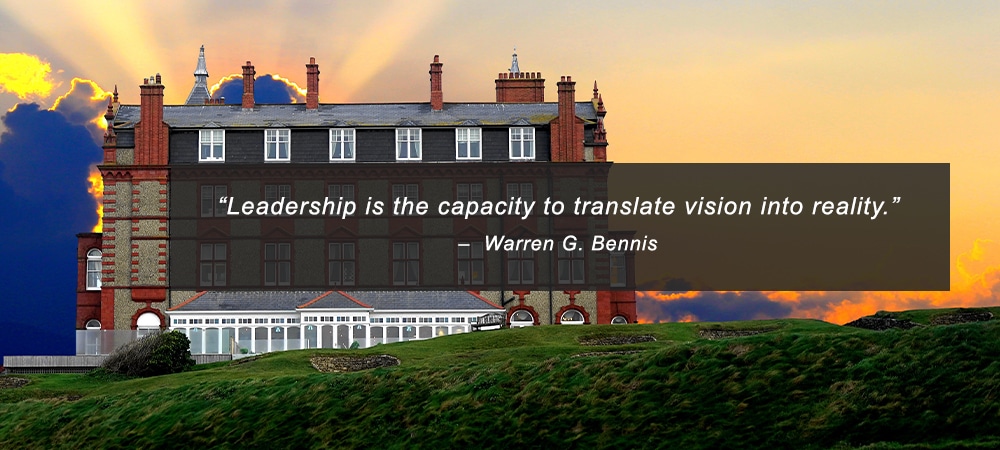
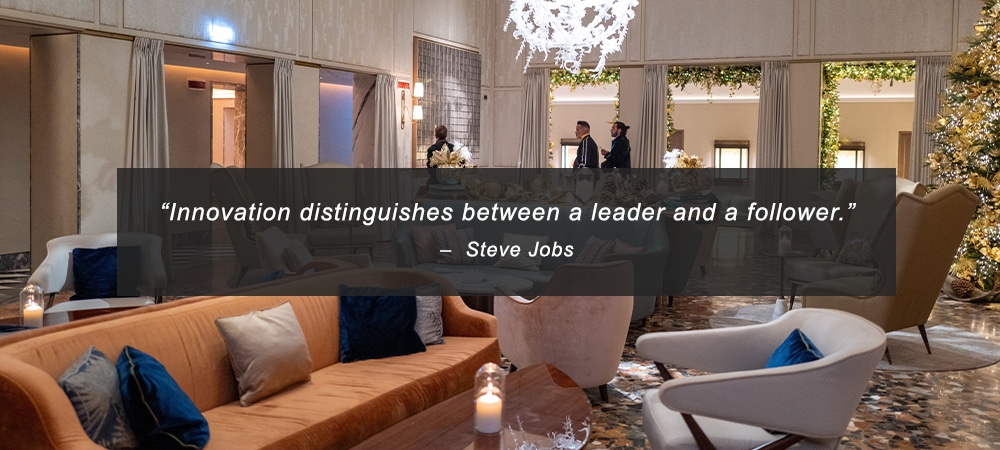
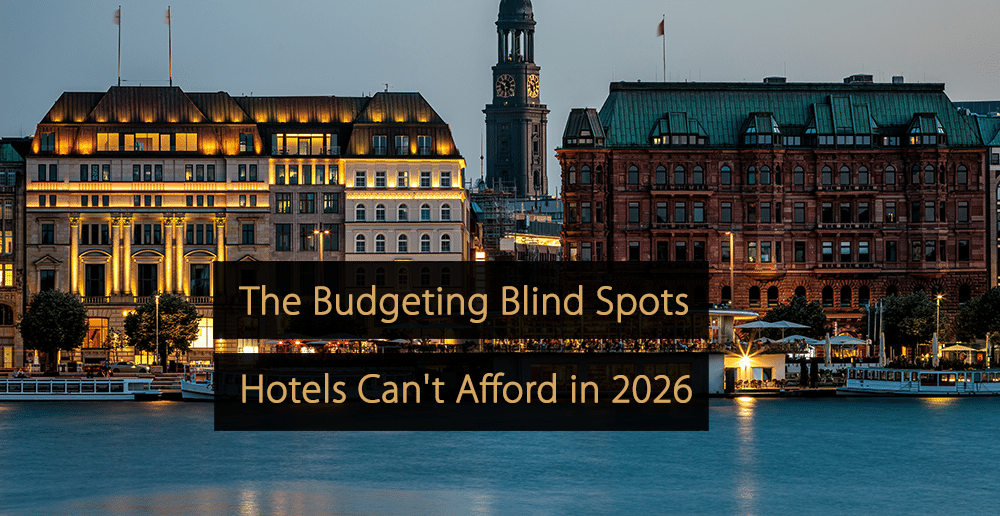
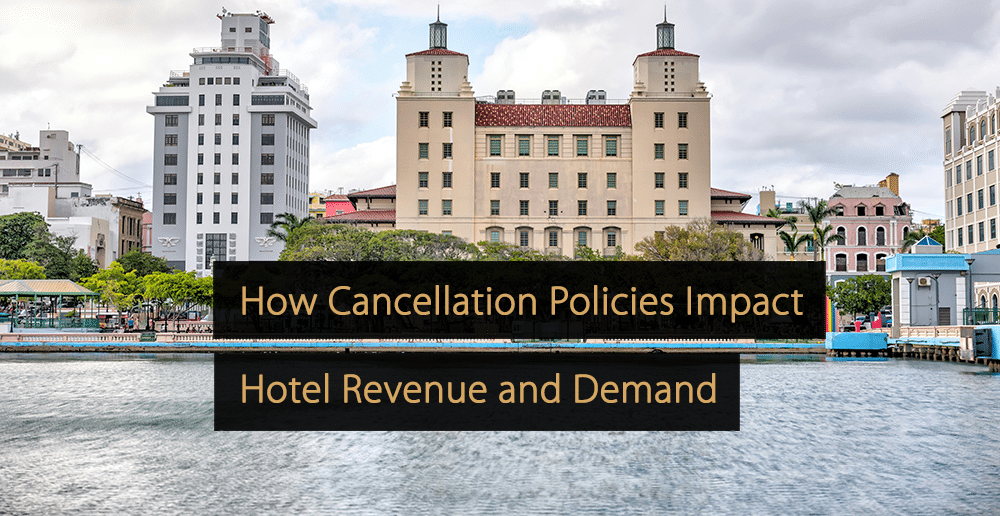

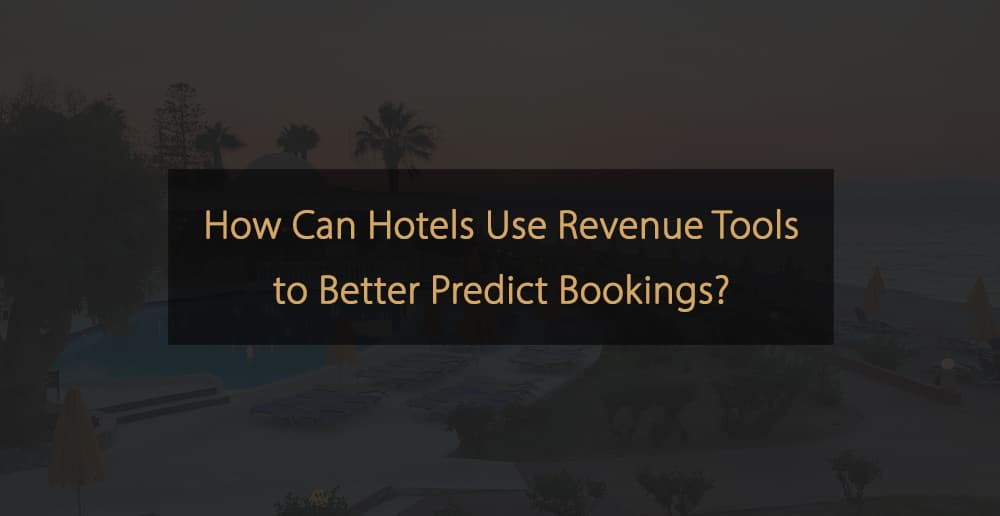

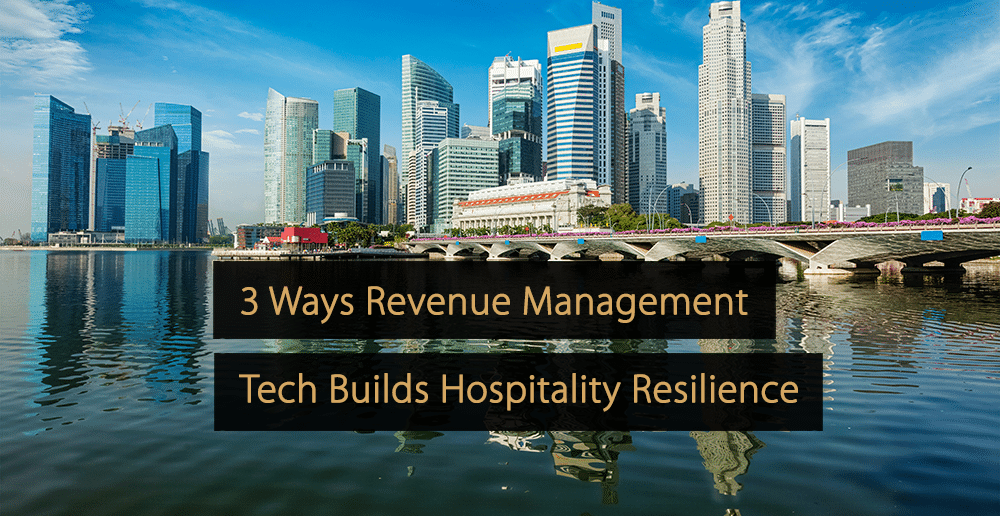
Great article! You said it right, creating the right revenue culture within the hotel is the key to success in revenue management. This is the end of the revenue manager “geek” behind his computer screen and must be in the field talking to team members and other departments. Keep it up guys!
Very good article
I’m impressed with the information I got here. It will help me a lot in my hotel management career.
It is really a thought provoking article! Strategies must be fixed for hustle free business management. Incentives for direct booking is a nice strategy. Thanks for sharing!!
First of all, your post is dope! Price strategies always remain on top regarding revenue management, for any business, including hotels.
Most Hoteliers know this but are clueless about how to calculate relevant prices. I also would advise using a price comparison tool.